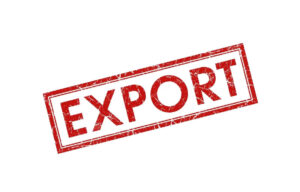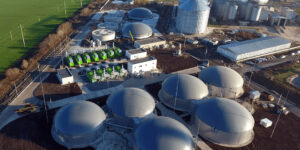
The occupancy rate of Lviv hotels in 2024 dropped to 49% compared to 52% in the same period in 2023, the press service of the Hotel Matrix hotel analytics project reports.
“The year 2024 was a period of significant changes for the Lviv hotel market: the city lost part of its business tourism status to Kyiv. The decline in corporate and business bookings led to a decrease in overall occupancy, which, despite active attempts to increase ADR, could not fully compensate for this loss, leading to a decrease in annual RevPAR compared to 2023,” Hotel Matrix reported.
According to Hotel Matrix, the average daily rate (ADR) for the reporting period amounted to UAH 2785, which is 5.8% more than in the same period in 2023. At the same time, RevPAR (revenue per available room per day) decreased by 3.2% to UAH 1375.
“Despite the 5.8% increase in the average room rate, it was not enough to compensate for the decline in occupancy. This indicates that Lviv hotels, although they were able to adapt their tariff policy, were unable to cope with the complete loss of customer flows, which led to a decline in RevPAR in 2024,” the study says.
It is noted that Lviv hotels should revise their hotel strategies for 2025 to compensate for these changes in the dynamics of customer flow.
Hotel Matrix is a web-based hotel analytics product developed by experts from Poland and Ukraine. It was launched in May 2020. Currently, 200 hotels are connected to Hotel Matrix.

According to the decree of President Donald Trump, the United States imposes additional duties on goods from a number of countries. The size of the tariffs varies depending on trade relations with Washington. The biggest restrictions are imposed on Cambodia, Vietnam, and Sri Lanka.
Countries with the highest duties
Cambodia – 49%
Vietnam – 46%; and
Sri Lanka – 44%
Thailand – 36%
China – 34% of the total
Bangladesh – 34%
Taiwan – 32%
Indonesia – 32%
Switzerland – 31%
South Africa – 30%
Pakistan – 29% – 29
Japan – 24% – 24
Malaysia – 24%
South Korea – 25%
European Union – 20%
Israel – 17%
Philippines – 17%
United Kingdom – 10%
Brazil – 10%
Singapore – 10%
Chile – 10% (basic rate)
Ukraine – 10% (basic tariff without additional restrictions)
The duties will come into force on April 9, 2025. In addition, the 10% basic tariff will be applied to all goods, which increases the overall rate for countries with already established duties. For example, Chinese goods will be subject to 44% (34% + 10%), and goods from the EU – 30% (20% + 10%).
Canada and Mexico are not yet subject to reciprocal tariffs.
Reasons for the introduction of duties
President Trump called these measures “mirror sanctions”, emphasizing that they are intended to compensate for unfair trade practices of other countries. According to him, the United States cannot afford to be an “economic target” and must protect its producers.
According to Bloomberg, the measures will affect the $33 trillion global market. Countries from China to Brazil are under attack, and the volume of their exports to the United States may decrease by 4% to 90%. Average tariffs may increase by 15%, which will trigger inflation in the US and increase the risk of recession.
In addition, the Trump administration continues to tighten trade measures previously introduced since 2017. In particular:
An additional 20% tax on all imports from China has been introduced.
A global 25% tariff on steel and aluminum is in effect.
A 25% duty on imports of automobiles and spare parts (effective April 3, 2025).
Expected consequences
Experts predict that under the maximum scenario, average tariffs in the US will increase to 2%, which could lead to a 4% reduction in GDP and a 2.5% increase in prices in the next two to three years.
China, the EU, and India will suffer the greatest losses, although their economies are likely to withstand the blow. Southeast Asian countries, Canada, and Mexico will experience a significant negative impact on their trade with the United States.

A modern tractor plant may be built in Ukraine, Minister of Agrarian Policy and Food Vitaliy Koval said following a meeting with representatives of the Korean company LS Group and Dmytro Pryputnyi, co-chairman of the Verkhovna Rada’s group on interparliamentary relations with the Republic of Korea.
“The construction of the tractor plant is not only a possible investment, but also a strategic step for the development of the Ukrainian agricultural sector. After all, since the beginning of Russia’s full-scale invasion of Ukraine, we have lost more than 8,000 units of machinery and equipment, of which more than a thousand units are tractors,” he wrote in a telegram on Thursday.
Koval noted that the Ministry of Agrarian Policy and Food is constantly working to update and modernize the material and technical base of the agricultural sector.
“We are interested in LS Group’s many years of experience and advanced technologies in the production of agricultural machinery, which they are ready to integrate into production in Ukraine. Korean investors are looking for potential partners to implement the project. Therefore, the Ministry of Agrarian Policy helps to establish such cooperation in the format of a joint Ukrainian-Korean enterprise,” the Minister emphasized.
According to him, the possibility of implementing bioenergy projects in Ukraine, in particular bioethanol production, as well as the prospect of creating a technology center to produce engines for agricultural machinery and other equipment, were also discussed with LS Group management.
The construction of the tractor plant is expected to strengthen the industrial base, create new jobs, and strengthen Ukraine’s position as a producer of high-quality agricultural machinery. This will allow Ukraine to increase its own production of agricultural machinery, which is one of the priorities of the Strategy for the Development of Agriculture and Rural Areas in Ukraine until 2030, the statement said.
LS Group is one of the leaders in the South Korean industry. Its model range includes tractors with a capacity of 30 to 150 horsepower.

In March 2025, Ukraine exported goods worth $3.62 billion, which is 4.5% more than in March last year ($3.46 billion) and 18% more than in February this year, Deputy Minister of Economy and Trade Representative of Ukraine Taras Kachka said.
“Despite the decline in exports in the first two months of the year, we managed to achieve positive dynamics in March. A significant increase in exports in March compared to February this year was made possible by an increase in the supply of agricultural products, iron ore and metallurgical products,” the press service of the Ministry of Economy quoted him as saying on its website on Tuesday.
According to preliminary data, in the first quarter of 2025, exports of goods reached almost $9.9 billion, the Ministry noted, while last year it exceeded $10 billion. The Ministry’s release does not provide information on imports of goods in March and their dynamics.
“Despite the decline in the physical weight of Ukrainian exports, their monetary value is increasing. In March last year, we exported almost 11.9 million tons, and in March this year – 9.98 million tons. Thus, the share of goods with higher added value is gradually increasing, which means that the Ukrainian processing industry is successfully overcoming obstacles in its development as a result of the war and entering foreign markets,” Kachka emphasized.
He clarified that compared to February of this year, the physical volume of exports in March increased by 15.9%.
According to the trade representative, exports of cast iron in March this year increased by more than 13.4 times (by $110 million) compared to February, sunflower seeds – by 11.5 times (by $15.9 million), oil cake – by 80.3% (by $35.8 million), sunflower oil – by 39.2% (by $141.6 million).
Kachka added that in March, exports by sea increased by 24.7% in monetary terms and 17% in weight compared to February this year, while exports by rail increased by 16.8% in monetary terms and 15.1% in weight.
According to the Ministry of Economy, in March Ukraine exported the following by value: corn ($514.4 million or 2.4 million tons); sunflower, safflower, or cottonseed oil ($503 million or 441 thousand tons); wheat ($25.5 million or 1.2 million tons). t); wheat ($253.9 million or 1.1 million tons); iron ore and concentrates ($238.4 million or 2.9 million tons); soybeans ($150.2 million or 369.2 thousand tons); insulated wires ($124.6 million or 6.5 thousand tons) and pig iron ($118.9 million or 300.9 thousand tons).
Ukrainian producers exported most of their goods to Poland ($407.7 million), Turkey ($294.3 million), Italy ($231.8 million), Germany ($196.3 million), China ($189.4 million), and Spain ($185.7 million).
The European Union remains Ukraine’s key trading partner. In March, Ukraine exported $2.04 billion worth of goods to the EU, or 6.1% more than in February.

ЧАО «Теофипольский сахарный завод» (Хмельницкая обл.), входящий в структуру ГК «Украина-2001», в 2024 году получил 177 тыс. грн чистого убытка против 3,181 млн грн чистой прибыли годом ранее.
Согласно повестке дня годового общего собрания акционеров, назначенного на 20 апреля в дистанционном режиме, акционерам предлагают утвердить результаты финансово-хозяйственной деятельности, убытки в размере 177 тыс. грн покрыть за счет прибыли общества в будущих периодах.
Акционеры должны заслушать и одобрить отчеты правления и наблюдательного совета, а также одобрить ряд заключенных в 2017, 2019, 2021 и 2024 годах договоров с участием ЧАО «Теофипольский сахарный завод», в частности с АО «Государственный экспортно-импортный банк Украины», ООО «Украина 2001» и ООО «Теофипольская энергетическая компания».
Кроме того, они должны предоставить разрешение на заключение в течение года договоров аккредитива на суммы, превышающие 25% и 50% стоимости активов общества по данным последней годовой отчетности.
По данным сервиса Opendatabot, ЧАО «Теофипольский сахарный» завод в 2024 году сократил доход в 1,7 раза, до 1,22 млрд грн, обязательства – в 1,4 раза, до 1,57 млрд грн, активы – в 1,4 раза, до 1,58 млрд грн, численность персонала – на 18 человек, до 400 сотрудников.
ЧАО «Теофипольский сахарный завод» входит в состав группы компаний «Украина 2001». Агрохолдинг владеет земельным банком в 41 тыс. га, которые расположены в Хмельницкой (36 тыс. га) и Николаевской (5 тыс. га) областях. Специализируется на свиноводстве (40 тыс. голов), разведении крупного рогатого скота (2,28 тыс. голов КРС, в том числе 1,19 тыс. голов молочного стада) и мелкого рогатого (1 тыс. голов) скота. Выращивает зерновые и технические сельхозкультуры, сахарную свеклу для собственного сахарного завода.
Перерабатывающая мощность сахарного завода – до 5,5 тыс. тонн/сутки сахарной свеклы. На Теофипольском сахарном заводе две производственные линии. Коэффициент автоматизации технологических процессов – 75-78%.
На территории сахарного завода в декабре 2017 года заработал биогазовый комплекс мощностью 15,6 МВт. Первая очередь комплекса мощностью 5,109 МВт работает на сахарном жоме. В июне 2018 года заработала 2-я очередь биогазовой станции еще на 10,5 МВт, которая перерабатывает кукурузный силос.
Владельцем «Теофипольского сахарного завода» является Вадим Лейви (17,9%), Вера Козова (9,9%), ООО «Фирма „Плутон“ (19,9%), ООО „Инвестконсалт 21“ (18,9%), ООО „Подолье-Консалт“ (13,8%), ПАО „Корпоративный инвестиционный фонд “Пионер» (10%).

Dneprovsky Railway Switch Plant JSC (DnSZ, Dnipro) will pay dividends to shareholders totaling UAH 420 million from its net profit of UAH 540.4 million between April 22 and October 1 this year.
According to a statement in the information disclosure system of the National Securities and Stock Market Commission (NSSMC), the decision was made by the general meeting of shareholders on March 26. Dividends will be paid at the rate of UAH 1.65 thousand per ordinary share of UAH 10.5.
As reported, based on the results of its operations in 2023, SESP paid UAH 112 million in dividends to shareholders (out of the net profit of UAH 510.86 million) at the rate of UAH 440 per share of UAH 10.5.
As of the end of 2024, 20.154% of the shares of DnSZ JSC are owned by Johnen Capital Limited (Cyprus), 5% are owned by Dnipro City Council member Zahid Krasnov, his sons Ruslan and Artem own 10% and 11.228% of the shares, respectively, and another 18.2959% are owned by Israeli citizen Victoria Korban (sister of businessman Gennadiy Korban – IF-U).
Among the shareholders who own more than 5% of the shares of DnSZ JSC are also the chairman of the board Sergiy Taranenko (almost 10%), Iryna Taranenko (8.658%), and CFO Valeriy Kryachko (7.3%).
DnSZ specializes in the production of track superstructure elements: switches, blind crossings of various brands, and leveling devices. The products are sold mainly in Ukraine and exported to more than eight countries.
As reported, in 2024, the plant increased its consolidated net income by 29.3% compared to 2023, to UAH 2 billion 380 million.